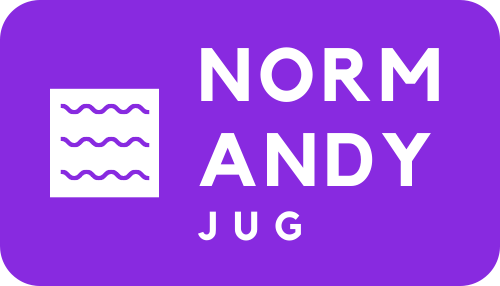The news media are prone to corruption, warns journalist Paul Weaver. The press corrupts itself and the public policy process when it seeks out dueling cover stories with drama, conflict, and quotable advocates but fails to discover or report the underlying realities.
Politically motivated reasoning and a predisposition of the public to rely on politicians rather than scientists can make an issue highly politicized and polarized. The present study explores the degree to which COVID-19 coverage was politicized and polarized from March through May 2020.
PBS NewsHour
PBS NewsHour is an hour-long evening news program that provides in-depth reporting and analysis of domestic and international political issues. The show is broadcast on more than 350 public television stations and member networks, reaching 99% of the American population. It is also available on online and via podcast. The website features additional content, including news briefs and a current events tool for students. The program is also close-captioned for the hearing impaired.
The NewsHour has a long history of covering politics and is notable for its gavel-to-gavel coverage of the Watergate Senate hearings in 1973, which was the first time an entire congressional investigation had been televised. The weekly program, originally titled The MacNeil/Lehrer Report, was renamed the PBS NewsHour in 1983.
PBS NewsHour is supported by contributions from individuals and foundations. Contributions help ensure that the NewsHour is able to continue providing balanced and in-depth coverage of the most important issues facing our country. To make a contribution, visit the NewsHour’s website. The organization is careful stewards of the funds that it receives and does not interrupt the program for commercial advertising.
The Economist
Founded in 1843 by a Scottish hat manufacturer to further the cause of free trade, The Economist Group is a global media and information services company. It produces a variety of weekly publications, including The Economist newspaper, and offers intelligence and analysis on business, world affairs, politics, technology, and culture.
The magazine was originally founded by James Wilson as a voice against England’s Corn Laws (regulations that restricted the import and export of grain). After Wilson’s death, Walter Bagehot took over as editor, expanding the publication’s focus on political issues.
The magazine is known for its libertarian ideology and believes that free markets are the best way to run economies and governments. It is also known for its refusal to publish bylines, presenting to readers a unified face. The Economist’s ideological commitments have been tested over the years, as it has misjudged elections, systemic financial risks, and referendum results. Zevin explains how The Economist has struggled to balance its self-appointed mandate of upholding liberalism with the practical demands of weekly print journalism and competitive media markets.
The Wall Street Journal
The Wall Street Journal is a leading source of business, financial and political news. Its coverage of the economy, politics and world events has won it 37 Pulitzer Prizes. The Journal is available in print and online, with a subscription. Students and staff at Adelphi University have access to the WSJ through a renewable site license verified by using their Adelphi email address.
The WSJ covers international, national, and local politics as well as the business world. The paper is also known for its op-eds and editorials. Its editors and columnists include prominent writers, including Peggy Noonan, John Fund, and Daniel Henninger. The WSJ has also received Pulitzer Prizes for its breaking news streams, interactive features and online columns.
The WSJ covers world and US news, markets, business, lifestyle, sports, and arts. It has a reputation for accuracy and thorough reporting, and is an excellent choice for anyone interested in a career in journalism. Its coverage has also won it many readers. A 2014 survey by the Pew Research Center found that its audience is evenly spread across the political spectrum.
Fox News
While Fox News may be the most widely recognized of these Murdoch-owned media outlets, its political coverage is also the most divisive. In a November 2019 poll, 61% of Democrats and Democratic-leaning independents say they distrust Fox News for political news, surpassing the shares who distrust the Rush Limbaugh radio show (53%), Breitbart News (43%), and CNN (39%).
Fox News is also notable for its role in intimidating candidates and public officials from doing anything that might enrage the network’s audience. For example, the network was instrumental in getting Agriculture Secretary Tom Vilsack to fire Department of Agriculture employee Shirley Sherrod after he used Andrew Breitbart’s deliberately doctored video to falsely accuse her of discriminating against black farmers.
More recently, Tucker Carlson catapulted himself into the spotlight by pushing baseless conspiracy theories about Covid-19 vaccines and elevating white nationalist talking points. Carlson’s slander of Dominion Voting Systems in a defamation case prompted the company to sue the cable news network, which ultimately settled the case for $1.6 billion.
CBS News
CBS News is part of ViacomCBS, which “has operations in virtually every field of media and entertainment, including broadcast television, cable television, local television, radio, publishing, music and motion pictures.”
The network recently aired a one-minute commentary from Katie Couric about the importance of reading. The program was later criticized for plagiarism, with critics saying that the piece was substantially lifted from a column in The Wall Street Journal by Jeffrey Zaslow.
In business terms, a network news operation has high fixed costs (studios, equipment, correspondents, executives and staff). To generate enough revenue to cover these expenses, the networks must produce lots of hours.
As a result, some networks have closed foreign and domestic bureaus, laid off staff and eliminated money-losing documentary units. The networks have also consolidated resources and established partnerships to share production, such as the joint election coverage with CNN.
